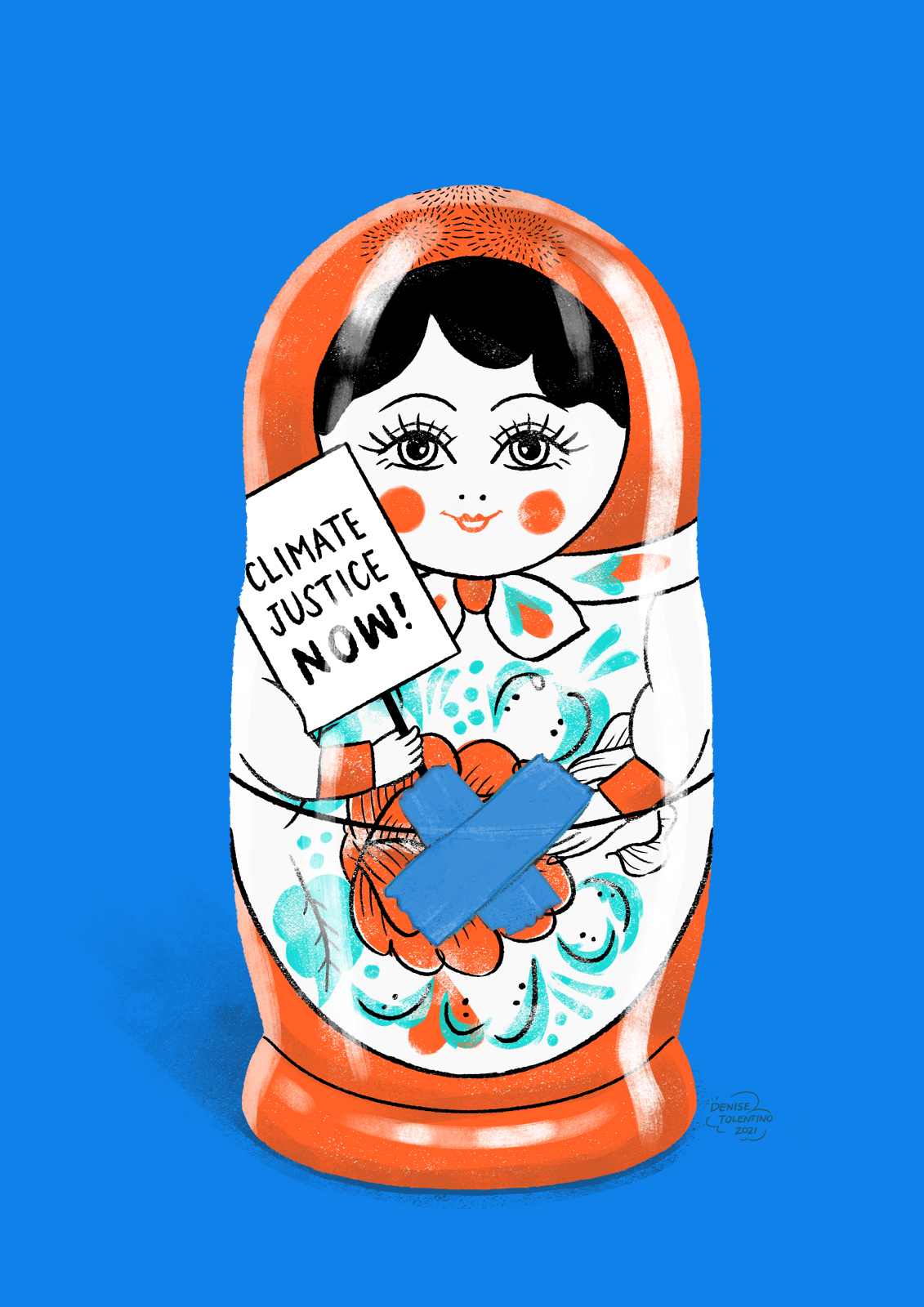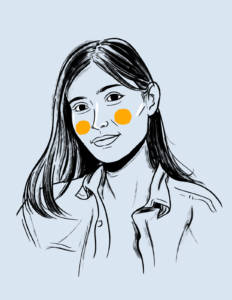My body, my choice, our future: thoughts and reflections on reproductive rights and climate justice
Everyone has the right to decide if, when, and how to have children. So yes, we support people’s decision to have children as well as people’s decision not to have children, and we work to make sure that people are able to make such decisions free from coercion and in an informed way.
It was around Christmas last year when some of my extended family got together that I was finally asked the question dreaded perhaps by a lot of childless women in their mid-twenties, “so when are you going to have a baby?”
To which I answered honestly, “I don’t think I want to”, and hoped it would be the end of that. Of course, it wasn’t.
Suddenly, everyone in the room was in on the conversation between me and my tita (aunt). I heard a couple of why’s, a sayang (what a pity), some glowing endorsements for having children, and an inquiry on my relationship status from a male cousin.
At that point, I could have said that we were talking about my life, my body, and therefore my choice, and none of their business. I would have been right. Perhaps it was filial piety. Perhaps it was the responsibility I felt as a women’s rights advocate that I could not just disengage. Surprisingly, however, when I put my advocate hat on, it was not the one I expected.
I remember saying something along the lines of—I don’t think I want to have a child with climate change happening. I am not even sure how kids will live through the next thirty or so years.
I used to look back at that reply with some regret, not because it was untrue because it wasn’t, but because it was incomplete. I had other concerns, too, like my financial situation and emotional readiness. As someone working in sexual and reproductive health and rights (SRHR), I also felt like I should have still asserted my bodily autonomy somehow. Instead, I felt like a half-baked climate advocate, worried that I might have also come off as an anti-natalist.
Often I feel like some people misunderstand reproductive rights advocates and, in particular, safe abortion rights activists. While those staunchly anti-abortion will happily paint us as anti-children and worse, I wonder if perhaps the average person could assume that our position was that women should not have children at all.
As I understand, the position of advocates like myself is that everyone has the right to decide if, when, and how to have children. So yes, we support people’s decision to have children as well as people’s decision not to have children, and we work to make sure that people can make such decisions free from coercion and in an informed way. Of course, there is more to the work than this.
Through my work, I have been learning more about the Reproductive Justice framework. Reproductive Justice was a term coined in 1994 by twelve Black women who, along with many other women of color, Indigenous women, and trans people, felt that reproductive rights conversation had been limited to choice without discussing access.

“Figure Nullipara”. Artwork by Denise Nicole Tolentino
The Reproductive Justice framework broadens the discussion by asking people to analyze reproductive issues using power systems and identify the various forms of oppression that result in some communities having less access to information and services and being more vulnerable to rights violations than others. The framework highlights the role of movements in demanding justice for these communities by holding governments and institutions accountable for gaps in access and care and the inability to fulfill human rights obligations.
For example, one of the things the framework emphasizes is not just the decision to have a child but the right and ability to raise children in a safe environment. An oft-cited example of a violation of this right is the situation of Black mothers who are made to fear police presence in their communities because of rampant police brutality against Black people. For many advocates and activists, this right also speaks to our climate situation.
The right to raise children in a safe environment means that people should be able to raise children without fear of the effects of an ongoing climate crisis, which disproportionately affects people of color in the United States, as was the experience during hurricanes Katrina and Maria and more recently during the Texas power outages, but also poor communities in the Global South, and, in particular, women who belong to these communities.
Applying a rights-based and justice framework to women’s experiences in the Global South has been extremely productive for me to understand our needs and challenges concerning sexual and reproductive health and the climate crisis. This is why, personally, I would also distance myself from anti-natalism despite not wanting children myself.
For many women in the Philippines, the decision to have children has already been made. It is made for them by the dearth of reproductive health information and options, from the non-implementation of comprehensive sexuality education to the uneven provision of reproductive health services and commodities to the criminalization of abortion. It is taken from them by men who rape or coerce them into having children.
The same women eventually shoulder the burden of care for their children, and in many cases, other relatives as well. Because of this, women are less mobile and more vulnerable to the effects of climate change. There are accounts of women losing their lives because they had stayed at home in the middle of a disaster. For women who are able to live through disasters, the burden of care can be heavier in the aftermath, and they are also at risk of sexual violence in evacuation centers and humanitarian setups.
Despite all these, many women perform leadership roles in their communities. They are organizers, crisis managers, and overseers of livelihood projects. For those belonging in communities whose livelihood and well-being are tied to their ecosystems, such as peasant, fisherfolk, and Indigenous peoples’ communities, many women have stood to be environmental defenders against land grabbers and extractive industries that come in to commodify their ecosystems and contribute to the worsening of the climate crisis.
In learning about these issues and participating in the movements that have taken them up, I recognize my privileged position as an advocate and activist. While I, as an activist, can proclaim to adhere to certain principles in relation to reproductive rights and climate justice and advocate these to try and effect change, some people and communities are continually under threat of direct violence even as they face institutional violence in the form of neglect by the state.
Clearly, capitalism and patriarchy work hand in hand to oppress women and women from poor communities the most. For these women, the intersectionality of reproductive and climate issues isn’t something to theorize and contemplate; it is their reality.
Of course, we should not only be looking to these women because of how they are marginalized and subjugated, but we should look to them because they can help us lead the way out of the climate crisis. Environmental defenders’ work to protect the environment is an example of building resilient communities from the impacts of climate change. Protected forests mean less destructive floods and landslides, and protected coastlines and marine ecosystems help abate storm surges.
As they resist the presence of extractive industries in their communities, we must not only support their actions but continue to call for divestment from these industries in our policies so communities do not continue to suffer these companies in the future.
I go back to that conversation with my tita now, and perhaps I would be less inclined to present such a bleak reality despite everything. Because while climate change is still a concern, our movements give me a reason to believe in the future.
They remind me that things are not just up to me. Above all, it is the role of governments and institutions to protect my right and everyone else’s to raise children in a safe environment. To make sure they do, I know our movements will continue to call for justice and accountability and to struggle for a future everyone, regardless of their age, gender, class, race, ethnicity, or reproductive choices, can look forward to.
The Author
 Shiphrah Belonguel is a 350 Pilipinas volunteer who currently works as SRHR Advocacy Officer at the Women’s Global Network for Reproductive Rights and studies Women and Development Studies at UP Diliman.
Shiphrah Belonguel is a 350 Pilipinas volunteer who currently works as SRHR Advocacy Officer at the Women’s Global Network for Reproductive Rights and studies Women and Development Studies at UP Diliman.
The Artist
Denise Nicole Tolentino is a freelance writer and illustrator. She uses her work to tell stories, inject humor, and push ideas that help make the world greener, safer, and fairer for everyone. She shares most of her works on instagram.com/drawnbydenise
Learn more about gender justice and feminist solutions at the upcoming Global Just Recovery Gathering on April 9-11, 2021. There are workshops that you can participate in and learn from amazing climate and social justice leaders from around the world. Public registration is now open.
Read more stories from our volunteers and partners this Women’s Month:
Commuters, pedestrians, and cyclists; Leading the way to a better normal by Celine Tabinga of ICSC
Climate justice must include gender justice by Mitzi Jonelle Tan of YACAP
